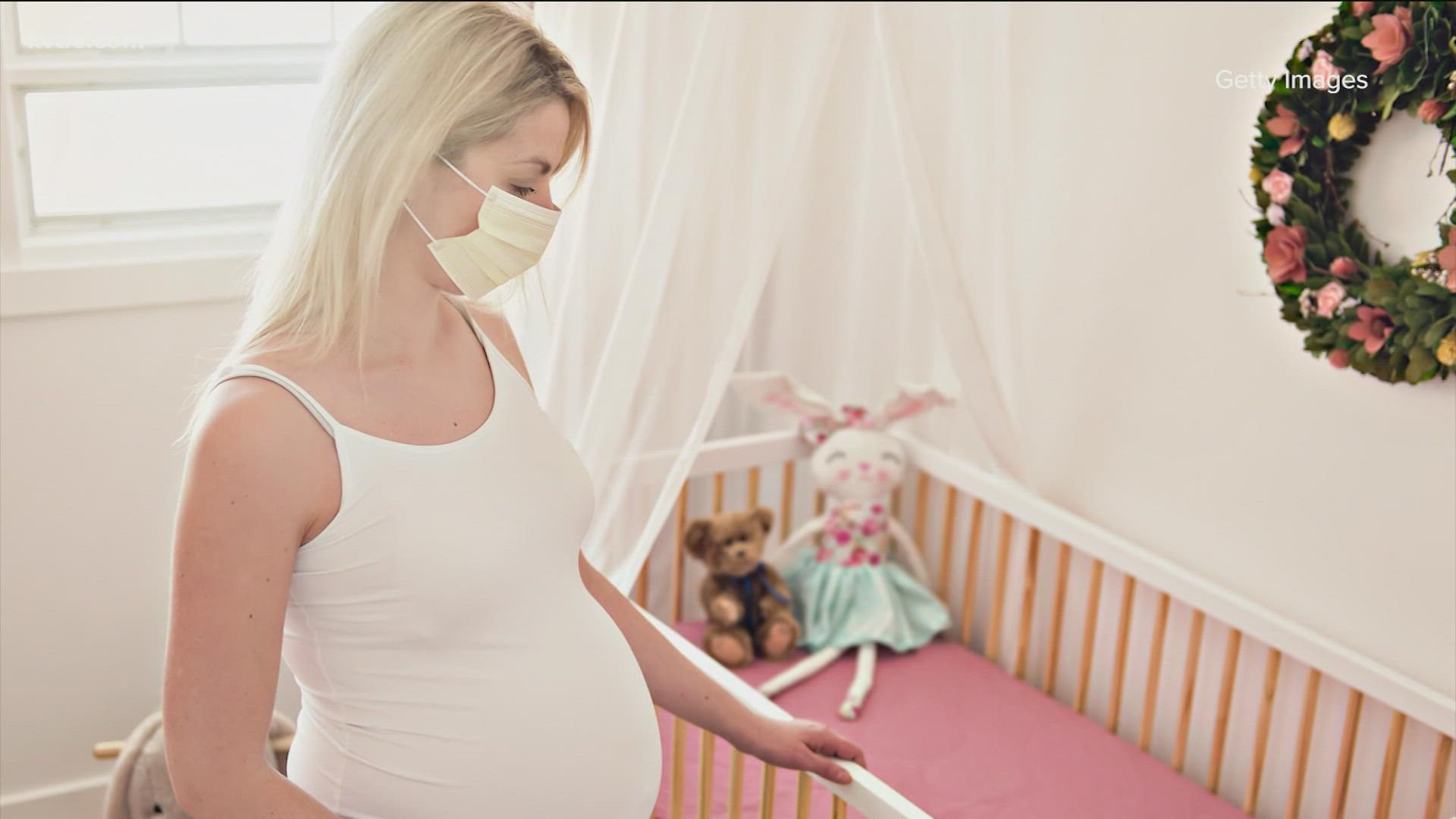AUSTIN, Texas — Just last week, the CDC strengthened its recommendation when it comes to pregnant women getting the COVID-19 vaccine. It says this is due to more and more pregnant women experiencing severe COVID-19 symptoms and complications.
Doctors in Austin say they are sadly seeing the same thing.
"We have had several patients over at our main Seton Hospital who have been in the hospital for weeks on end. Some of them have to get their babies delivered because their lungs are in such bad shape,” said Dr. Kenneth J. Moise, the director of the Comprehensive Fetal Care Center at Dell Children's Medical Center and professor of Women's Health at Dell Medical School. “So, they have to undergo emergency C-sections earlier than usual to help them compensate because, remember, a baby inside is using a lot of oxygen from the mother."
He said most of the women being hospitalized are young and healthy. Their only comorbidity is that they are pregnant.
A new study published in the Journal of the American Medical Association shows how much higher the risk is for pregnant women compared to non-pregnant women. Pregnant women are five times more likely to end up in the ICU, 14 times more likely to be put on a ventilator and 15 times more likely to die.
"She's taking care of herself and she's taking care of this unborn child and giving it oxygen,” Moise said. “So, that's stressing her whole system – her heart, her lungs, her entire body is being stressed by the pregnancy. So, you add pneumonia on top of that and it's no wonder that some of these women just decompensate."
Moise did want to note that although the risk of death is higher for pregnant women, overall, it is still low. Less than 1% of expecting moms who get COVID-19 end up dying.
When it comes to which vaccine to get, Moise and the CDC said pregnant women should get an mRNA vaccine, meaning either Moderna or Pfizer. This is because they have seen good effects from the mRNA vaccines in pregnant women and they want to avoid the small risk of blood clots in young women associated with the Johnson and Johnson vaccine.
But not only can the vaccine help moms, but it can also help protect their babies during pregnancy and once they are born. This is because new studies show that the antibodies the mother gets from the vaccine can be passed to the baby through the placenta and through breast milk.
"How long do these antibodies last? We're not sure,” Moise said. “But the new information about the antibodies in the breast milk tells me that if you continue to breastfeed your baby, you're continuing to give antibodies to help that baby for some time, maybe even up to six months of age or more."
Moise said this is incredibly important to pass on antibodies because babies will come into this world with no protection from COVID-19 and will not be able to get vaccinated. He said this is especially crucial for high-risk babies, the type of infants he works with at the Fetal Care Center.
If a mother gets COVID-19 toward the end of her pregnancy, there is only about a 2% chance the baby will be born with COVID-19. But the focus is more on passing on those antibodies for protection.
There is one myth that Moise wanted to address. He said the COVID-19 vaccine poses no risk for miscarriage. The normal miscarriage rate is between 11% and 16%. A recent study showed that the miscarriage rate among vaccinated women was 13%, which is considered average.
WATCH: Texas Fertility Center recommends vaccines for adults who are pregnant, trying to get pregnant
PEOPLE ARE ALSO READING:

